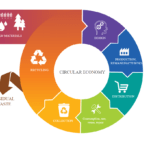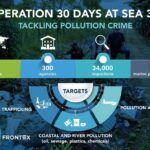European Green Deal: Commission adopts new limits for some of the most harmful chemicals in waste
La Comisión Europea ha adoptado hoy una propuesta para proteger la salud humana y el medio ambiente de algunas de las sustancias químicas más nocivas presentes en los residuos, los
Today, the European Commission adopted a proposal to protect human health and the environment from some of the most harmful chemicals in waste – Persistent Organic Pollutants (POPs). The proposal tightens the limits for these chemicals in waste, preventing them from re-entering the economy.
Commissioner for the Environment, Oceans and Fisheries Virginijus Sinkevičius said:
“Today, we are taking one more step forward towards delivering on our promise to eradicate the most harmful pollutants from our daily lives. Removing persistent chemicals in waste is essential to protect our health and our environment. Ambitious limits for these substances are also needed to foster high-quality, toxic-free secondary materials that can be safely used in a growing circular economy.”
Persistent Organic Pollutants (POPs) are chemicals with toxic properties that remain in the environment for a very long time, accumulate in food chains and can harm human health and the environment. With today’s proposal the objective is to eliminate or minimise POPs’ emissions from waste. Although Persistent Organic Pollutants are generally no longer used in new products, they can still be found in waste coming from some consumer products such as waterproof textiles, furniture, plastics and electronic equipment.
With today’s proposal, the Commission is proposing to introduce stringent limits for the following three substances, or groups of substances, in waste:
- perfluorooctanoic acid (PFOA) and its salts and related compounds – found in waterproof textiles and fire-fighting foams;
- dicofol – a pesticide, previously used in agriculture;
- pentachlorophenol, its salts and esters – found in treated wood and textiles.
In addition, the Commission is proposing to tighten the maximum limits in waste for another five substances or substance groups that are already regulated.
The proposal is an important step in achieving a more circular economy as announced under the Circular Economy Action Plan. It contributes to the European Green Deal‘s Zero Pollution Action Plan and to the Chemicals Strategy for Sustainability with its associated action on per- and polyfluoroalkyl substances (PFAS), often dubbed “forever chemicals”.
Background
Today’s proposal is amending the annexes of the Regulation on persistent organic pollutants. The POPs Regulation (Regulation (EU) 2019/1021 on persistent organic pollutants) implements the European Union’s international commitments under the Stockholm Convention and the UNECE Protocol on POPs.
According to the Regulation, waste containing POP substances must be managed in an environmentally sound way, with minimal impact on human health and on the environment. It must minimise emissions of POPs to air, water and soil – with the ultimate aim of eliminating these emissions. It should also minimise the extent to which these toxic substances are released into the environment. The resulting secondary materials should always be safe to use, and as far as possible, free of toxic substances. When disposing of waste containing POPs above certain concentration limits, the POP content must be destroyed or irreversibly transformed.
For more information
Proposal to amend the annexes of the Regulation on persistent organic pollutants (POPs)







Leave a Reply